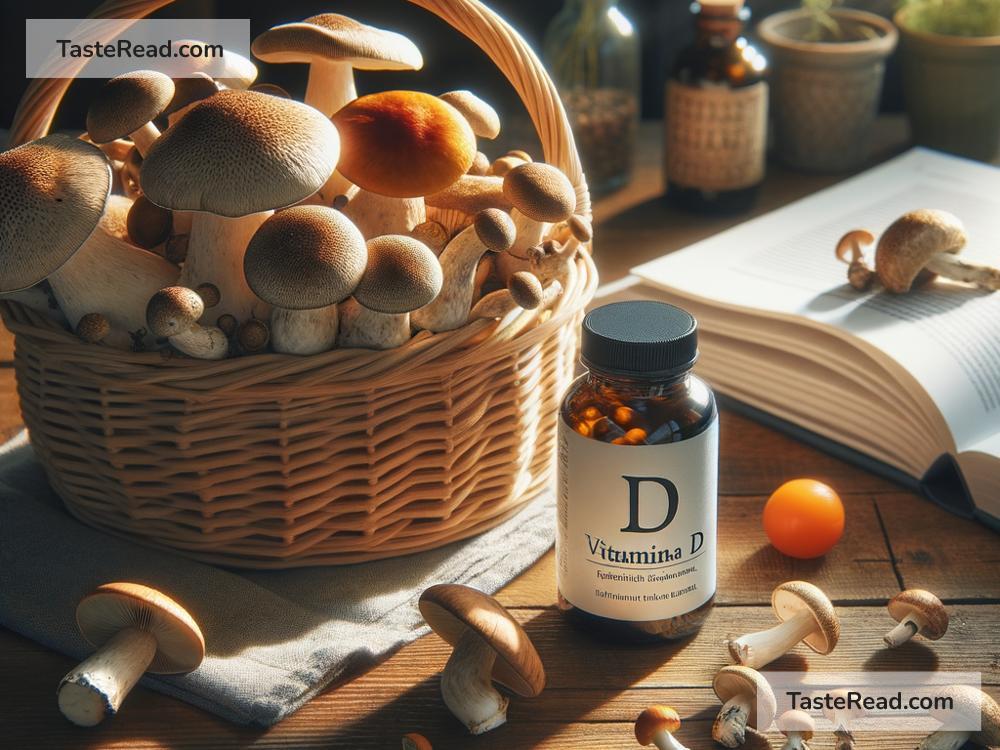The Surprising Link Between Mushrooms and Vitamin D
When people think of vitamin D, the first thing that often comes to mind is sunlight or maybe dairy products like milk fortified with vitamin D. But did you know that mushrooms can also be a source of this essential nutrient? That’s right—those familiar fungi you might add to your salads, soups, or pizzas have a special connection to vitamin D. Let’s explore this surprising link and learn how mushrooms might help support your health.
Why Is Vitamin D So Important?
Vitamin D is often called the “sunshine vitamin” because the human body produces it when the skin is exposed to sunlight. This nutrient plays a crucial role in keeping us healthy. It helps our bodies absorb calcium and phosphorus, which are essential for strong bones and teeth. Without enough vitamin D, people can develop weak bones and conditions like osteoporosis or rickets.
Vitamin D is also important for the immune system, helping our bodies fight infections and maintain overall well-being. Some studies even suggest that vitamin D may improve mood, reduce feelings of fatigue, and lower the risk of chronic diseases like heart disease or diabetes.
However, many people don’t get enough vitamin D—especially during the winter months when sunlight is less intense and we spend more time indoors. This is where mushrooms can provide an interesting solution.
The Special Power of Mushrooms
Unlike plants, mushrooms are fungi—organisms that are quite different from your typical fruits and vegetables. One fascinating characteristic of mushrooms is their ability to produce vitamin D when exposed to sunlight or ultraviolet (UV) light.
This happens because mushrooms contain a substance called ergosterol, which acts similarly to a compound in human skin. When mushrooms are exposed to sunlight or UV light, the ergosterol converts into vitamin D2, one of the forms of vitamin D. This makes mushrooms a unique food that can provide vitamin D without needing animal-based products or supplements.
In fact, mushrooms are one of the only non-animal foods that can naturally contain significant levels of vitamin D. For people who follow plant-based diets like vegetarianism or veganism, this makes mushrooms an especially valuable option.
Sunlight + Mushrooms = High Vitamin D
Not all mushrooms naturally come with high levels of vitamin D. Like humans, they need exposure to sunlight or UV light to trigger the process of producing vitamin D2. Here’s how it works:
When mushrooms grow in the wild under the sun, they develop naturally higher levels of vitamin D2. However, not all store-bought mushrooms are grown this way. Many are cultivated indoors in dark environments, which means they don’t get any sunlight exposure and therefore contain very little vitamin D.
The good news is that UV light exposure can be added to the process. Some mushroom producers use special UV lamps during cultivation or after harvesting to boost the vitamin D content. As a result, you can now find mushrooms labeled “vitamin D mushrooms” in many stores. These are a great option if you’re looking to add more of the nutrient to your diet.
Interestingly, you can also increase the vitamin D levels in mushrooms at home! Simply place store-bought mushrooms outside in direct sunlight for a few hours. Some studies suggest that even a short exposure period can significantly boost their vitamin D2 content. It’s a natural and easy way to make your own food richer in this important nutrient.
How Much Vitamin D Do Mushrooms Provide?
The amount of vitamin D in mushrooms can vary depending on the type of mushroom and how much sunlight or UV light they’ve been exposed to. Wild mushrooms, like chanterelles and maitake, often have naturally higher levels of vitamin D. On the other hand, common varieties like white button mushrooms or cremini tend to have less vitamin D unless they’ve been treated with UV light.
Still, even small amounts of vitamin D found in mushrooms can be helpful, especially for people who aren’t getting enough from other sources. If vitamin D mushrooms are an option for you, they can provide up to 200–400 IU (international units) of vitamin D per serving—sometimes even more if they’ve been specially treated with UV light.
A Fun and Healthy Addition to Your Diet
Mushrooms aren’t just good for their vitamin D content. They’re also packed with other nutrients like fiber, antioxidants, and B vitamins. Mushrooms are low in calories and can add a rich, satisfying flavor to meals, making them a versatile and healthy ingredient for almost any dish.
From hearty mushroom soups to savory stir-fries, there are endless ways to enjoy this delicious food. And knowing that they can be a source of vitamin D makes them even more appealing.
Final Thoughts
The link between mushrooms and vitamin D is a fascinating example of how nature offers solutions to support our health. While sunlight remains an important source of vitamin D, incorporating mushrooms into your diet can be an easy and delicious way to boost your intake—especially if you don’t consume much dairy or spend a lot of time indoors.
So next time you’re at the grocery store, keep an eye out for vitamin D mushrooms or experiment with placing regular mushrooms in the sun. Your body and taste buds will thank you!


